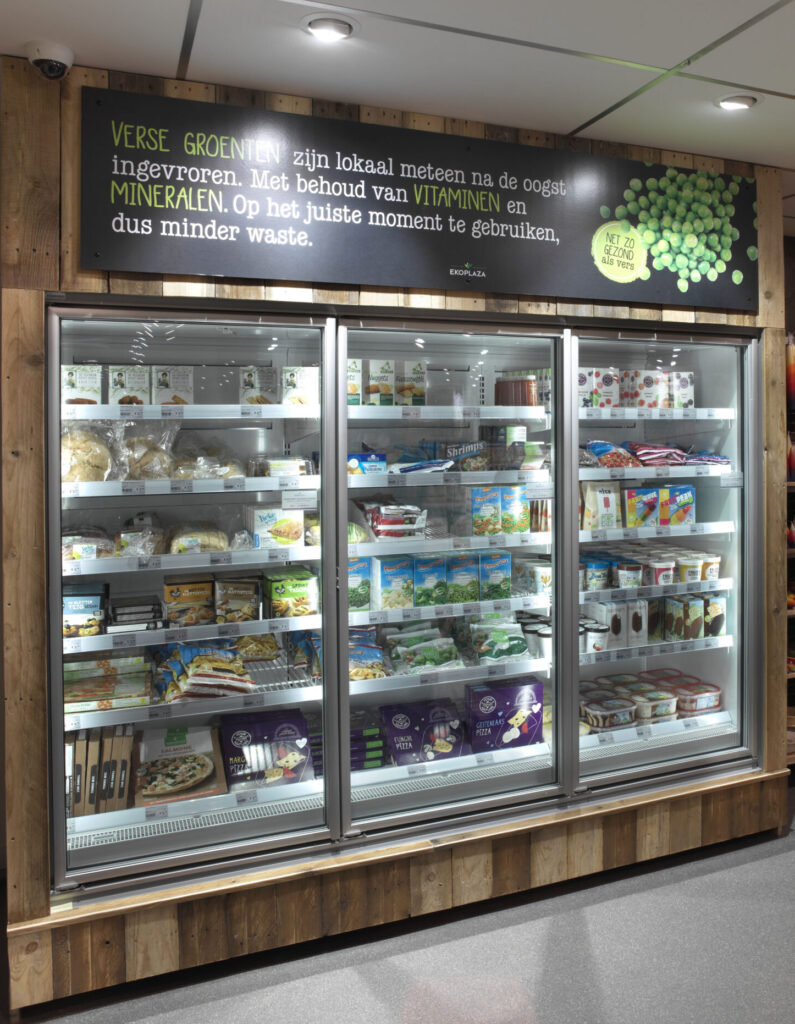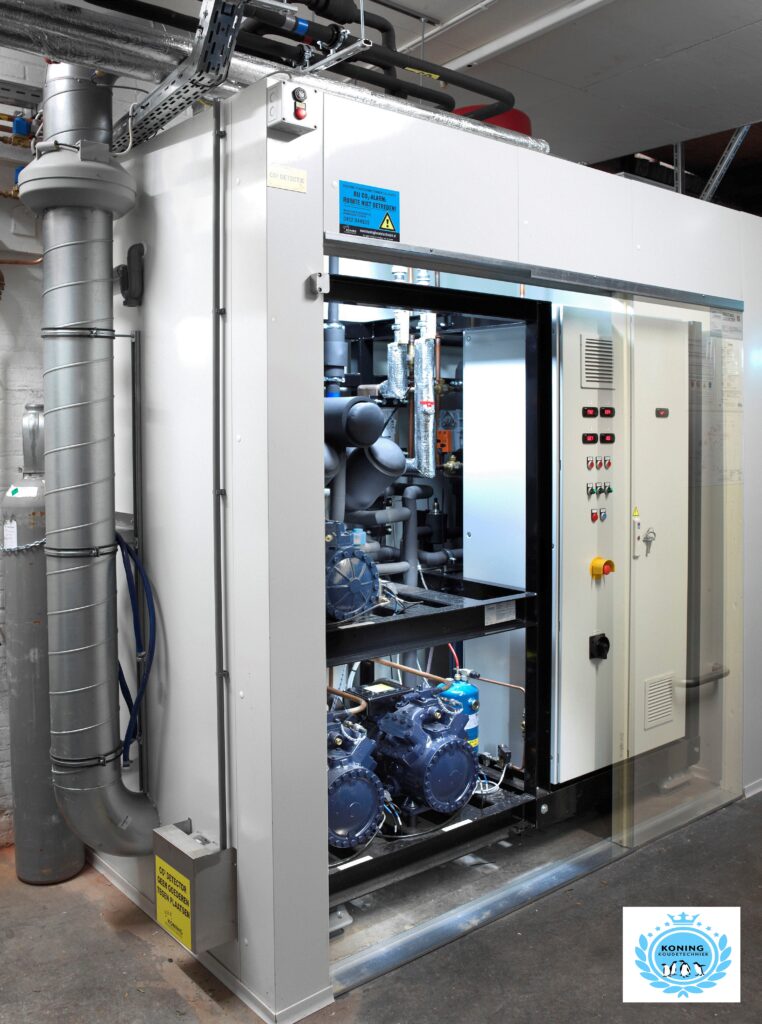Case study: Dutch organic shop’s first CO2 installation pays for itself in just four years
“Ekoplaza is focusing on natural refrigerants and energy savings and aims to be 100% converted to natural refrigerants in the future.”


About the store
Ekoplaza (part of the Udea Group) started in 1980 as an organic neighbourhood supermarket in Amsterdam. It has since grown into a retail chain with 83 stores and 39 pick-up locations throughout the Netherlands.
The small organic Ekoplaza store in Haarlem, The Netherlands, covers 529m2 sales area and has six employees. In 2020, there was a need for this Ekoplaza store to expand, and as such, the sales area of the shop next door was added to the existing premises. This required upgrading of the R404A refrigeration system to a brand new, state-of-the-art natural refrigerant (CO2) system.
Ekoplaza is distinctly organic. As such, they don’t believe in simply targeting the lowest price; there is transparency in the chain, and the company values the importance of building long lasting relationships with its customers and suppliers. “There is no profit maximisation at the expense of mother earth,” said Geert-Jan Smits, Formula Manager, Ekoplaza. Ekoplaza offers a safe haven for people who want to make sustainable choices. It is an organic supermarket chain that wants to support a healthy, organic lifestyle.
“At Ekoplaza, we strive to make the world healthier and more sustainable,” explained Smits. “As a family business and organic supermarket, we feel responsible. Our goal is to contribute to a healthy world together with our employees, suppliers, partners and customers. One of our important points of attention is sustainability. The point here is that ecological systems can continue to exist thanks to climate-neutral systems which do not exhaust natural resources. A great goal in which we continuously investigate is how we can use resources even better, more sustainably and more efficiently.”
That’s why natural refrigerants were a strategic choice for Ekoplaza when they decided on the new cooling system. “We decided to go the natural refrigerant route because it offers a long-term, future-proof solution that is in line with the company’s sustainability goals,” explained Smits.
To further ensure that no energy is wasted, all vertical cabinets (including half-height cabinets) for the retrofitted store were bought equipped with glass doors. Hazard analysis and critical control points (HACCP) standards are respected at all times too.
System description
To accommodate the increased cooling demand, the aging centralised R404A refrigeration system was replaced with a brand new centralised transcritical CO2 system that provides cooling, freezing, air conditioning and heating for the shop, as well as the butchery next door. The system comes complete with heat recovery that is used for warming the store with four heaters.
This new centralised system (including display cabinets) was built and installed by Koning Koudetechniek, a specialised company from the Netherlands that focuses on installations using natural refrigerants. The contractor was Wieman Koel- en Klimaattechniek. The system was built according to all applicable European and Dutch standards.
The system is designed to deliver the total thermal power requirements of the shop, including cold storage, presentation of products, and air conditioning and heating of the shop front.

About the system:
- Sales area: 529m2
- Refrigeration system: centralised transcritical CO2 system
- Electricity consumption: 95,000kWh/year
- Cost savings: EUR 3,500/year
- Nominal cooling capacity = 33,4kW
- Nominal freezing capacity = 4,15kW
- Airconditioning capacity = 8,3kW
- Nominal heating capacity (at -10°C ambient temperature) = 26kW
Return on investment
Thanks to a tax investment allowance, the resulting net additional investment of the CO2 system is only EUR12,000 when compared to a traditional HFC-based system.
The electricity consumption (calculated at 95,000kWh/year) is comparable to that of the previous installation but with the new CO2 system there is no natural gas consumption for heating. This results in a saving of about EUR3,500/ year. As such, the payback period for this new installation is only four years.
Going 100% natural in future
Although Ekoplaza strategically chose to focus on natural refrigerants going forward, this solution can sometimes be much more expensive than retrofitting to lower GWP refrigerants, explains Smits. This cost can be a challenge for franchise partners in particular. However, the return on investment makes this upfront cost worth it.
There have been no problems whatsoever with the installation and Ekoplaza is very satisfied with the new CO2 system.
Although the Haarlem store is Ekoplaza’s first store running on natural refrigerants, it certainly won’t be its last, confirmed Smits. “Ekoplaza is focusing on natural refrigerants and energy savings and aims to be 100% converted to natural refrigerants in the future,” he said. However, economic factors will influence how long this process takes and it will vary depending on the store in question. “Retrofitting existing equipment and using plugins are alternative choices that have to be made per shop.”

